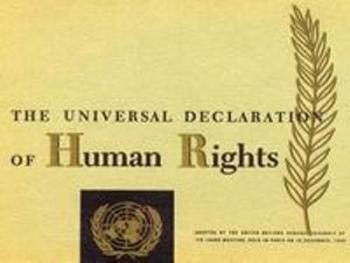|
|
World Press Freedom Day
an article by Good News Agency
Year 9th, no. 7 - 16 May 2008
www.goodnewsagency.org
Some 150 media professionals from around the world adopted on May 5 a declaration emphasizing the importance of freedom of expression and free access to information to participatory democracy at the close of a two-day conference entitled "Freedom of Expression, Access to Information and the Empowerment of People" in Maputo.
Also during the celebration of World Press Freedom Day in the capital of Mozambique on Saturday, the Mexican reporter, Lydia Cacho Ribeiro received the 2008 UNESCO Press Freedom Prize, awarded to her by the Director-General of UNESCO, Ko´chiro Matsuura, in a ceremony held in the presence of the President of the Republic of Mozambique Armando Guebuza.

Image from UNESCO website
Aiming to encourage UNESCO Member States to implement policies that are favourable to the basic human right of freedom of expression and that facilitate access to information, the "Maputo Declaration: Fostering Freedom of Expression Access to Information and Empowerment of People" emphasizes the importance of open government, transparency, accountability and public access to information.
The declaration recognizes the contribution of public service, commercial and community broadcasting to enable all members of society, including marginalized populations, to be heard and take part in the decision-making process. It further calls on the media and on the press to contribute to access to information and facilitate the participation of marginalized and linguistic minorities.
For further information, see the UNESCO website.
|








|
DISCUSSION
Question(s) related to this article:
Free flow of information, How is it important for a culture of peace?
* * * * *
Latest reader comment:
Perhaps the simplest way to illustrate the essential importance of free flow of information for a culture of peace is to discuss the importance of the control of information for the culture of war.
Here are excerpts from an Washington Post investigation two years ago entitled Top Secret America: A hidden world, growing beyond control. áTo read the original, click here.
"* Some 1,271 government organizations and 1,931 private companies work on programs related to counterterrorism, homeland security and intelligence in about 10,000 locations across the United States.
* An estimated 854,000 people, nearly 1.5 times as many people as live in Washington, D.C., hold top-secret security clearances.
* In Washington and the surrounding area, 33 building complexes for top-secret intelligence work are under construction or have been built since September 2001. Together they occupy the equivalent of almost three Pentagons or 22 U.S. Capitol buildings - about 17 million square feet of space.
* Many security and intelligence agencies do the same work, creating redundancy and waste. For example, 51 federal organizations and military commands, operating in 15 U.S. cities, track the flow of money to and from terrorist networks.
* Analysts who make sense of documents and conversations obtained by foreign and domestic spying share their judgment by publishing 50,000 intelligence reports each year - a volume so large that many are routinely ignored." . . .
"Every day across the United States, 854,000 civil servants, military personnel and private contractors with top-secret security clearances are scanned into offices protected by electromagnetic locks, retinal cameras and fortified walls that eavesdropping equipment cannot penetrate. . .
Much of the information about this mission is classified. That is the reason it is so difficult to gauge the success and identify the problems of Top Secret America, including whether money is being spent wisely. The U.S. intelligence budget is vast, publicly announced last year as $75 billion, 21/2 times the size it was on Sept. 10, 2001. But the figure doesn't include many military activities or domestic counterterrorism programs."
As we said in the draft Declaration and Programme of Action on a Culture of Peace that we sent from UNESCO to the UN General Assembly in 1998:
"98. It is vital to promote transparency in governance and economic decision-making and to look into the proliferation of secrecy justified in terms of 'national security', 'financial security', and 'economic competitiveness'. The question is to what extent this secrecy is compatible with the access to information necessary for democratic practice and social justice and whether, in some cases, instead of contributing to long-term security, it may conceal information about processes (ecological, financial, military, etc.) which are a potential threat to everyone and which need therefore to be addressed collectively."

|
|









